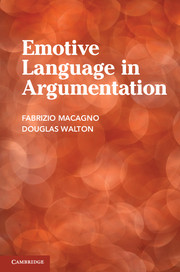5 - What Our Words Hide
Presupposition and Dark-Side Commitments
Published online by Cambridge University Press: 05 June 2014
Summary
In the previous chapter we showed the different types of acts of defining. The most dialectically powerful is the implicit definition. The speaker, instead of stating or advancing a definition, simply takes it for granted, considering it as part of the interlocutors’ common ground. Zarefsky (1998) and Schiappa (2003: 111-112; 130) pointed out the implicit dimension of this act of naming reality, which they call “argument by definition.” Instead of putting forward a classification and supporting it by a definitional reason, the speaker simply names reality, leaving the definition unexpressed. As seen in Chapter 4, the hearer is left with the burden of reconstructing the move, assessing the definition, and rebutting it if it does not correspond to the shared meaning. This complex mechanism, one that can be exploited for rhetorical and dialectical purposes, has been classified previously as an ‘improper’ act of defining, and it may even be seen as a non-act of defining. It is a definitional act, as it alters the dialectical situation restricting the interlocutor’s possibilities of making further moves. It is a stipulation of a kind, as the speaker commits the hearer to a proposition, but he does not take on any responsibility for it. However, at the same it is a non-action, as it is a speech act required by the act of naming actually performed by the speaker. For this reason, pragmatic and semantic ambiguity plays a crucial strategic role in this kind of dialectical tactic. The hearer needs to retrieve the implicit move from a semantic and pragmatic perspective. At the same time, he needs to reconstruct the definition, and the type of speech act the speaker did not perform, in order to ascertain whether to continue the dialogue or attack the possibility of the implicit act.
- Type
- Chapter
- Information
- Emotive Language in Argumentation , pp. 154 - 206Publisher: Cambridge University PressPrint publication year: 2014



